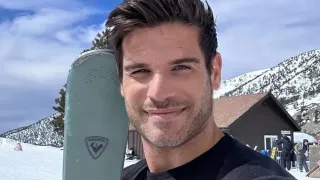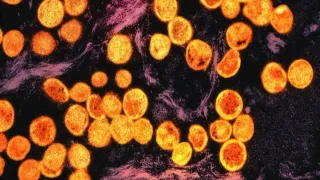October 18, 2016
Hunky Dory
Padraic Maroney READ TIME: 3 MIN.
Hollywood has many tales about a wayward parent who gets saddled with their child for the viewer's entertainment. Hijinks ensue and then, within 90 minutes, the two learn and grow from each other.
"Hunky Dory" is not necessarily one of those movies. Nor is it told in the standard Hollywood fashion, though it tries its darnedest to tie everything up in a happy little bow before the credits roll.
Sidney (Tomas Pais, looking like he is an expat from the '90s alt rock scene) is a sexually fluid wannabe singer. However, his performing career wasn't going anywhere, so he turned to working as a drag queen at a rundown cabaret. Embarrassed about his current situation in life, he floats through life without much obligation or responsibility. That is, until he wakes up to find his son, George, is in his apartment, with George's mother nowhere to be found.
This is usually when the precocious kid helps to turn his parent's life around and the pair realizes that their lives are better with the other one in it. While there are a few cute moments between father and son, "Hunky Dory" never tries to go down that saccharine-filled road.
The film's framing structure is problematic, focusing on the days of the week. More times than not, just as the action is starting to mount, the film cuts to black with a title card announcing a new day has begun. It kills any momentum that the film momentarily had, as it starts a new day and cuts away to new scenes. It's a little bit like blacking out in the middle of an argument and waking up during the aftermath.
Along with the structure undercutting the film's emotional ability, the conclusion is its biggest Achilles' heel. Perhaps because Hollywood has trained the audience to expect a big "Ah-hah" moment from the main character, we have an idea what is coming. But "Honky Dory" doesn't come around to it until the last 10 minutes, and then finds Sidney rushing through these concluding minutes to fix everything he has spent 80 minutes ruining. This leads to a final scene that gives that previously mentioned big happy ending, but it doesn't really fit the rest of the film. The death of any film is when the ending doesn't ring true; this one rings loud, but when a film that otherwise feels grounded in reality gives in to a big happy ending, it just doesn't feel authentic.
Pais, who helped co-write the script from an idea he had, and writer/director Michael Curtis Johnson jump too quickly into introducing George. They never really spend any time developing the other characters, except for Sidney. The main character isn't a likable one or even one that you can really root for, so having fully fleshed out characters surrounding him would have helped soften things. There's never any explanation about why most of these people would keep him in their lives, beyond the occasional roll in the hay. Even when he does that, there seem to be inconsistencies.
Young Edouard Holdener is a stand out in the film as the young George. The newcomer has the most difficult role in the film, balancing the innocence of being a child and being fragile when thrust into his father's world. Holdener makes it look easy as he maneuvers between these different emotions, all while never veering off into a territory where he makes George look like the parent in their relationship. For a young actor to be this adept at such a balancing act, it will be exciting to see how his career blossoms as he ages.
"Hunky Dory" has interesting aspects and characters that you do want to know more about, but it ends up getting in its own way. With the filmmakers unable to find the right pacing, the film rushes through too many things without explanation. As Sidney works his way through the weekend, the film touches on many issues, but doesn't really take the time to explore any of them in much detail. Like many pop performers, "Hunky Dory" is only surface deep and trying to scratch below for more is a fool's game.






